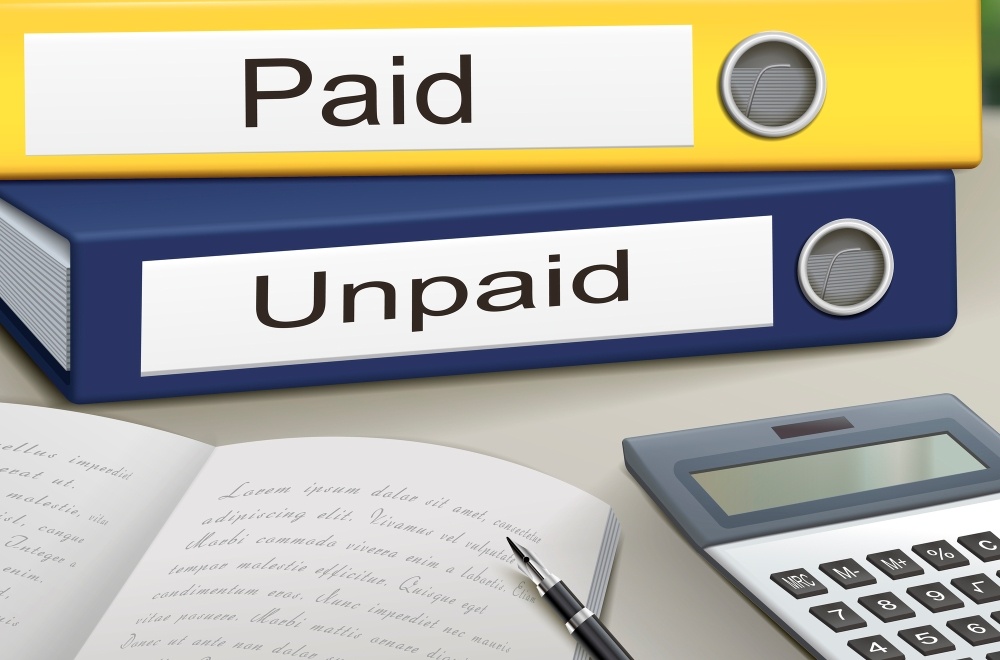Unpaid invoices.
That pile (hopefully small) that sits at the end of your desk.
The pile of papers that you don’t like to think about, yet they cause you the biggest concern.
Concern and stress because unpaid invoices have a negative knock-on effect on your everyday business operations.
Chasing outstanding and overdue invoices eats up your and your employee’s time, taking them away from the day-to-day job, cutting into your profits, and ultimately affecting your bottom line and your cash flow.
Not everyone enjoys invoice collection as part of credit control. And not everyone has the experience in chasing down debtors, managing the problem effectively and efficiently so that you can move your client from the won’t pay to the paid, quickly!
That’s why you should have robust processes and procedures in place that help you move your invoice collections through various stages.
(If you’re interested in specific tactics, you might like to look at our post on collection invoice strategies for some top tips to keep your credit control running smoothly.)
Outstanding invoice definition
You and your client must understand the vital role the invoice plays in your business transaction.
For example, an invoice sets out the payment terms for the products or services purchased by the customer from your business, including the various payment methods, contact details, reference numbers, and the all-important payment due dates.
Outstanding invoice meaning
An invoice is considered outstanding when it has been sent to your customer, but it has not yet been paid. Often outstanding invoices are issued before the due date, so your client has the information in plenty of time.
Overdue invoice meaning
An invoice moves into the `overdue` category when payment has not yet been made, and it is now past the agreed payment date. These invoices are the ones that must be followed up asap.
Collecting unpaid invoices
Before jumping on the phone or sending a rather abrupt email demanding payment (trust us, this seldom works), check and check again that the client is 100% in the wrong and has not, to date, paid the invoice.
Check everything from the initial agreement, your contracts, all communications, and more. Ideally, you need to ensure that you’ve upheld all parts/elements on your side and everything has been completed as expected.
From here, check your invoicing criteria. For example, is the amount correct? Does it have the right purchase order number, are the dates correct, contact details, etc.? Wrong or incorrect details on an invoice will hold up payment.
Once everything has been checked and reviewed internally, follow up on the overdue invoice by email or a personal phone call, depending on your relationship with the client.
Most B2B communication is via email, so this method of contact would not be unusual.
Our advice at this stage… don’t go in all guns blazing. Instead, we’d advise you to use a firm, fair, and friendly approach – maintaining relationships while still achieving a successful result.
You could also look at the various ways your debtor can pay and, again, depending on your relationship with your client, look to see if it would be possible to set up a payment plan.
If after your chase email or phone call you still haven’t heard anything from your client, or they fail to agree to any terms in their response, it’s essential to make contact again, stressing the importance of prompt payment.
Phone calls can often be the best communication method at this stage, ensuring nothing is lost in translation.
However, you need to ensure that the person making the phone call is fully trained and experienced to handle the conversation. There can be no room for any misunderstanding or for the conversation to turn confrontational.
If you still aren’t getting anywhere fast, you still have options
1. If the person you’re dealing with has a superior, speak to them. Explain the situation and the resolution you would like.
2. Look to instruct a professional, experienced debt collection agency. Debt collectors are trained to deal with those `won’t` pay clients; we understand how to successfully resolve outstanding debts and work with robust invoice collection procedures, all while maintaining relationships.
Bringing a debt collection team like Direct Route onboard often resolves the matter faster and much more effectively and efficiently.
Handing overdue invoices over to the professionals sooner rather than later is your best chance at receiving quick payment on overdue debts, stopping them from negatively affecting your business.
Let us take the strain and frustration out of chasing bad debts, call the team at Direct Route today on 0330 229 1991
